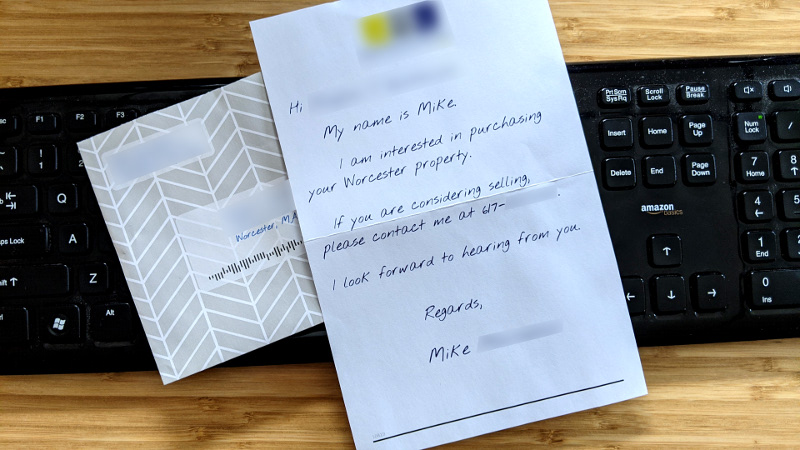Right of First Refusal Vetoed
The letter below was sent to subscribers around 11pm January 14, 2021 by MassLandlords Executive Director Doug Quattrochi.
Editorial note: This letter provoked one objection from the renter community with respect to the comment about nonprofits paying no real estate taxes. A future article will examine the full complexity of Massachusetts nonprofit laws and regulations, payments in lieu of taxes, and the methods and motivations by which a nonprofit may or must obtain a municipal exemption under state law. Suffice it to say for now that the very first nonprofit lot we double-checked (215 Cambridge St, Worcester, MA, a wood frame three decker) had an assessed value of $426,900 and a fiscal year 2021 tax obligation of $0.00. The objected-to comment is reproduced below as originally published.
--

This type of for-profit farming letter is all-too familiar to those of us who own rental real estate. Nonprofits who want to own rental real estate could do the same instead of attempting to expropriate property by force of law.
Hello MassLandlords Reader,
We learned at 7:58 this evening, confirmed approximately one hour later, that the right of first refusal (section 83 of 191-H5250) has been vetoed by the Governor. At time of sending, there has been no official press announcement yet. Confirmation is viewable on the Governor’s letterhead here.
In theory, the right of first refusal was supposed to prevent displacement by helping renters become their own landlords. In practice, we all know that being a landlord is difficult, capital-intensive work that few are prepared to undertake and even fewer continue after more than a couple years. The actual intent of right of first refusal, first pioneered in Washington DC and since partially repealed, is to legally extort money from property owners and/or to gradually shift ownership of land to nonprofits, who pay no real estate tax and operate at a competitive advantage to for-profit owners. (Don't ask me how city budgets are supposed to run without real estate tax, I don't know.)
The Governor rightly chose to veto right of first refusal, citing housing production grounds. (Read his letter to the legislature.)
You will note that the Governor vetoed other provisions, including eviction sealing. Unlike right of first refusal, and unlike two previous versions of eviction sealing, the eviction sealing in this bill reflected significant owner input. But this input was not the result of any formal process, which in Massachusetts remains perhaps almost irreparably broken. It seems more likely that our input in this space was entirely through Councilor Lydia Edwards of the City of Boston, who reached out to us for informal feedback. The result was an eviction sealing bill that I considered reasonable.
In any event, both of these proposals will no doubt resurface in the 192nd legislative session, starting this month, in forms yet unseen. For now, though, we can all rest a little easier. Our voices have been heard and can be heard again in the future.
To those of us who reached out to their Reps, Senators, and the Governor's office, on behalf of the membership of MassLandlords and indeed all housing providers across the state, I offer my sincere gratitude.
Our team will remain available to all elected officials for consensus-oriented policy making. We look forward to working with the legislature to sustain the right to use and dispose of private property, to ensure that our social safety net catches everyone, and to continue our mission to create better rental housing in Massachusetts.
Sincerely,
Doug Quattrochi
Executive Director
MassLandlords, Inc.




